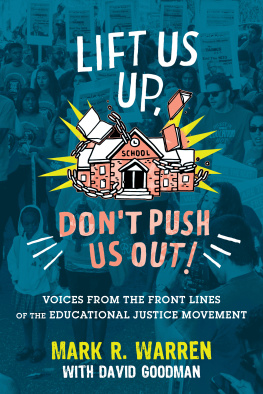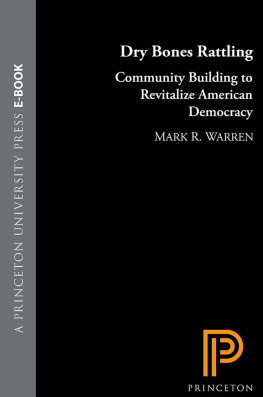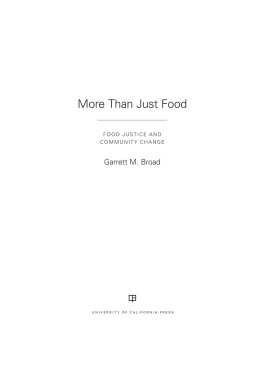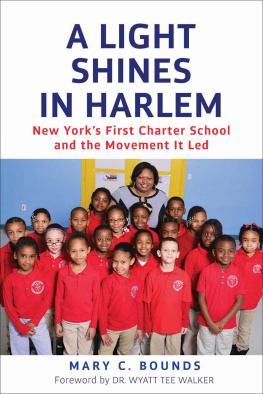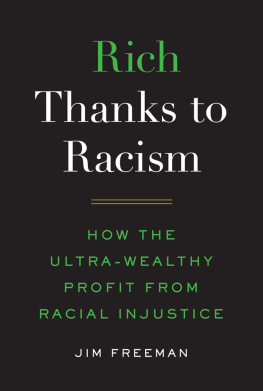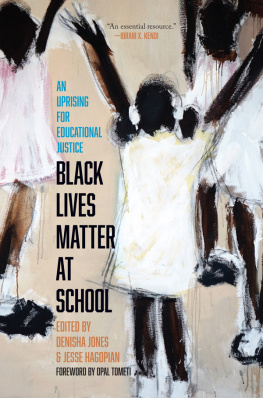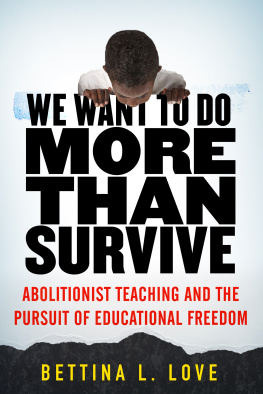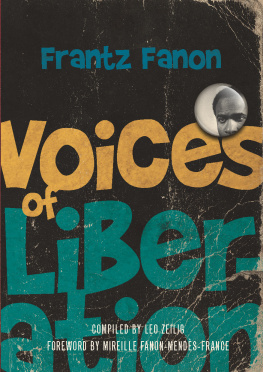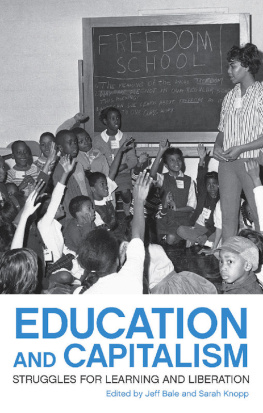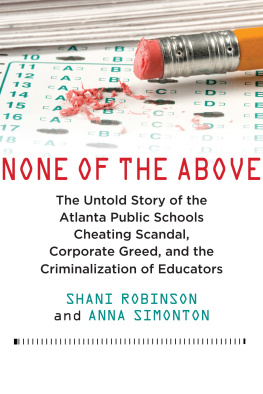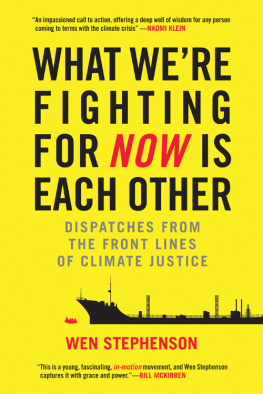Table of Contents
Pagebreaks of the print version
Guide
PRAISE FOR LIFT US UP, DONT PUSH US OUT!
Lift Us Up, Dont Push Us Out! is a bold and exciting book that presents the stories we never hearpowerful stories of successful grassroots organizing in schools and communities across the nation led by parents, students, educators, and allies. The lessons we can learn from these inspiring activists and campaigns need to be spread far and wide. They show how social justice unionism plays a vital role in the fight for equity and justice for all our children and in the growing movement against privatization of public education.
KAREN LEWIS , president of the Chicago Teachers Union
Full of powerful ideas, powerful examples, powerful policy strategies, and powerful people, this book touches both mind and heart. These compelling storiestold by those who lived themteach us about and advance the much-needed educational justice movement.
JEANNIE OAKES , Presidential Professor Emeritus,
University of California at Los Angeles, and author of
Keeping Track: How Schools Structure Inequality
Each one of the essays is a tour de force. You are captivated by the passion, the fury, the courage, the honesty, and the determination that is expressed so brilliantly by the writers, who have found a way, by working arm-in-arm with others, to fight for educational justice for all children. This book brings the powerful and authentic voices of parent and community movement leaders into our classrooms and communities.
KAREN MAPP , senior lecturer on education,
Harvard Graduate School of Education
Featuring diverse and powerful stories of fights against the corporate degradation of American schooling, Lift Us Up, Dont Push Us Out! weaves an inspiring vision of what education could and should be if we valued all children and their potential. It could hardly be more timely.
CHARLES PAYNE , author of So Much Reform,
So Little Change: The Persistence of Failure in Urban Schools
At last! This book of victorious stories guides us through the resistance to racism and assaults on public schools. It is incredibly inspiring to see how educators, students, parents, and community organizationspeople of color, in particularare joining in the fight back to defeat school closures, charter expansions, and other privatization schemes. Organizing is key as uplifting policy solutions, community schools, and intergenerational movement-building replace appalling alienation and rampant disinvestment in education.
DR . JOYCE E . KING , Benjamin E. Mays Endowed Chair for
Urban Teaching, Learning, and Leadership, Georgia State University
Lift Us Up, Dont Push Us Out! weaves together the stories of parent organizers, student activists, and committed educators who are forging a powerful movement for educational justice across the United States. Through compelling first-person narratives, the book highlights grassroots activism as a strategy for making schools culturally responsive, inclusive, and equitable.
JOHN ROGERS , professor of education,
University of California at Los Angeles, and director of
UCLAs Institute for Democracy, Education, and Access (IDEA)

To our young people,
the next generation of social justice organizers
PREFACE
Mark R. Warren and David Goodman
MARKS STORY
In February 2015, I was sitting in a room with a dear friend, Lori Bezahler of the Edward T. Hazen Foundation, talking about the tremendous response I had gotten to an article I published on the need for an educational justice movement. I said I had to find a way to build on this articlewhy dont I write a book about how organizers and education activists are building this movement today? Lori countered with a different approach; she suggested I work with them to tell their own stories of movement building.
I immediately saw this as a great idea. I would get to invite all of my favorite peopleorganizers and educators who I thought were doing exciting and groundbreaking work. And wouldnt it be more compelling and inspiring for readers to hear directly from movement builders themselves? I could bring these organizers and activists together to discuss their essays as part of this process. They could build new and stronger relationships in these meetings, and that itself would be a direct contribution to movement building. Our collective sharing and learning process would then be reflected in the book.
The plan struck a chord, and I received an overwhelmingly positive response from organizers and activists to participate in the project. People were hungry for a chance to share their stories, deepen their analyses of systemic injustice, discuss the lessons of movement building, and develop new strategies for organizing across sectors and movements.
Around that same time, I helped found the Urban Research-Based Action Network, a group of activist scholars trying to reimagine the relationship between the academy and community. We were looking for new ways of producing knowledge that did not always situate the professor at the top of a hierarchy. We wanted instead to lift up community knowledge and work in partnership with community and education activists. I saw the book as a way to reimagine scholarship as a collaborative process that directly seeks to advance social justice movements.
Sanjiv Rao from the Ford Foundation embraced this idea right away and helped shape and support it. Joined by another thirty or so movement builders, the contributors to this book gathered in December 2016 at the offices of the Ford Foundation. We met just after the presidential election, and that brought a new urgency to our convening as well as a stronger recognition of the need for organizers and activists to support one another across movements. Contributors shared ideas for their essays, and we engaged in deep reflection on both what we learned together and the challenges we face to build a larger, stronger, and more unified movement.
We made sure to create a space where movement builders could bring their whole selves. We shared art, poetry, and song. We wanted to be smart and strategic but also to express the care and love for young people and for each other that animates the movement and sustains our participation.
It was such a powerful meeting that participants wanted to meet again. We met six months later and decided to form a Peoples Think Tank as a learning community and an idea space for movement building. The network would use the book as a first step to promote intersectional movement-building strategies and engage new people in the struggle for educational justice.
During this time, I met David Goodman, a professional writer with a deep commitment to social justice. David became an invaluable partner in crafting this book. He gave me terrific advice about all aspects of writing and publishing. At times he pushed me to get out of my academic head and better orient myself to a larger audience. Along with me, David worked with most of the contributors on their essays.
Lift Us Up, Dont Push Us Out! represents the culmination of over twenty-five years of my engagement with community, parent, and youth organizing and with the broader educational justice movement. I have strongly shaped the contours and content of this anthology. Nevertheless, movement builders speak for themselves in their essays. They tell their stories and offer their analyses in their own voices. Together, I believe, we have produced a summary of the best of the last fifteen years of movement organizing and have highlighted models for organizing and educational justice that point the way forward.

